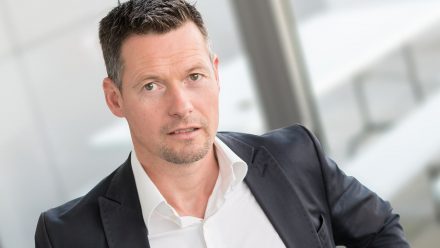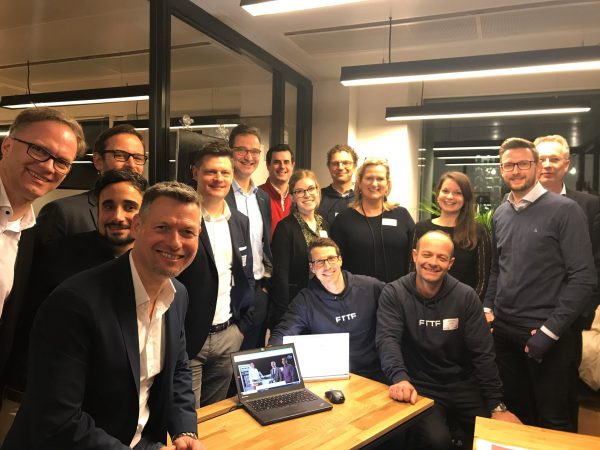High-Tech Gründerfonds — also known as HTGF — is a German venture capital firm for startups that already have a proof of concept but are still very much at the beginning. Brought into being in 2005 as a public-private partnership between the German Federal Ministry for Economic Affairs and KfW with several industrial companies, the seed investment company, which was originally located in Bonn, has had its own representative office in Munich since early 2020. In total, HGTF has nearly 600 investments, more than 100 exits and two IPOs on its books. Some of the successful Munich-based startups in which HTGF has recently invested include Iatros, Tangany and Uniki. We spoke with Marco Winzer, the face of HTGF in Munich.
Munich Startup: Please introduce yourselves!
Marco Winzer: HTGF is a seed investor for innovative technologies and business models, primarily in Germany, but also in Europe. With more than 900 million euros under management, we successfully support top founders, whose ideas can revolutionize entire industries and improve people’s lives. From founding to exit. We typically invest 500,000 to 700,000 euros in the first round of financing, either in the form of equity capital or convertible loans. We can be the sole investor, but prefer financing with other seed stage investors. Across all rounds of financing, we can invest a total of 3 million euros in a startup.
Ideas that can revolutionize entire industries

The startups we finance become part of the ‘HTGF Family’ — one of the strongest networks in the field of high-tech venture investing, with which we actively support startups with expert knowledge in the areas of growth, customer acquisition, hiring, co-investment and follow-up financing.
Munich Startup: What are your preferred areas of investment?
Marco Winzer: Our passion is high-tech. We invest in startups in the fields of digital business models, industrial tech, life sciences, chemistry and related areas of business. The founders should be developing technologies, products and business models that are absolutely groundbreaking. We invest very early on — there should already be a proof of concept — which means the founding teams are often incomplete. Together with the founders, we then handle team and company building, which means we help introduce the skill sets that are missing in the team.
Munich Startup: What type of startup would you never invest in?
Marco Winzer: Some of the industries we don’t invest in include: armaments, alcohol, tobacco or gambling — anything that is ethically and morally unacceptable or unsustainable to us. We also don’t finance business models that are just ‘me-too’ or ‘copy cats.’ Overall, the aspect of sustainability has grown considerably in importance.
HTGF: “We aren’t the better founders”
Munich Startup: Do startups need to be worried about you getting too involved?
Marco Winzer: No. We know we aren’t the “better founders.” We see ourselves as sparring partners. A partner who you discuss business development with, develop strategies with and who gives you recommendations and contacts and valuable network connections. After seed financing, the interests of the founders and HTGF should be aligned: namely increasing the value of the company.
In operative terms, HTGF receives a monthly report and there is regular contact between our responsible investment manager and the teams in addition to shareholder meetings, etc. Certain business activities that are outside the agreed business plans, the managing directors need to have approved by all investors, which is normal for VC. Another factor is that HTGF never buys more than 25% of the GmbH shares. The founding team is always in the ‘driver’s seat.’

Munich Startup: After initial contact, how long does it take to conclude a contract?
Marco Winzer: Our record is 28 days. But that is a total exception. Startups should usually plan on a period of three to five months.
Success factors for startups
Munich Startup: To be successful, a startup needs to…
Marco Winzer: … solve a significant problem. The most important factor of success, however, is the founding team and management! That’s why our motto is ‘We invest in people.’ A team has to be agile, dynamic, problem solving, professional and forward thinking! And ready to change their strategy and tactics if necessary. The founders need to demonstrate a high level of reactivity to changes in regulatory and market conditions and also be prepared to tackle difficult situations. At the same time, they should also have a vision. And of course appeal to a large, dynamic market in which they quickly — but also regularly — verify their product-market fit. Does the product or service address the customers’ needs? That is the key success factor: customer.
Disputes in the founding team — a no-go factor for HTGF
Munich Startup: Tell us about a no-go factor in a pitch!
Marco Winzer: The main objective of a pitch to me is learning to trust each other, which is why honest, transparent and open interaction is important to me. That also means openly addressing potential weaknesses or unresolved points. As a result, the no-go factors would be: falsehoods, overselling and arrogance as well as disputes within the founding team. Another worrying factor is when the founders don’t know their own figures, their unit economics.
Munich Startup: Have you ever seriously miscalculated a situation?
Marco Winzer: It does happen…and it’s something every seed investor is familiar with: The technological development doesn’t work out as planned. I’ll give you a vivid example from pharmaceuticals: ‘The mouse dies during toxicity studies’ — and the entire development stage is stopped. Then the whole seed investment from HTGF is worthless. Or regulatory requirements can’t be addressed.
A major factor of failed startups, however, is the team: If there are disputes, distancing, etc., then often the business plan is no longer pursued and is doomed to fail.
Munich Startup: The trend of the year is…
Marco Winzer: What’s currently trending are solutions to tackle the corona crisis and its impact on society and the economy. That not only includes the development of vaccines and therapeutic substances, but also digital solutions, for example in the field of hygiene and equipping hospitals. All fields of technology are called upon to do their part.
Initial support for strong teams
Munich Startup: What do you think the Munich startup scene does right?
Marco Winzer: Munich has excellent academic institutions — such as its universities, research and development departments, etc. — that put an early focus on commercializing their results. That is supported by a good and solid landscape of tech-transfer institutions and incubators. At the same time, initial support is provided for strong teams emerging from the universities. And last but not least, the Munich scene is distinguished by sound collaboration between industry, startups and academia.
Munich Startup: Last but not least: Whom should startups contact if they would like to meet with you?
Marco Winzer: You can basically contact anyone at HGTF. We personally participate in many startup events in Munich — just reach out to us. If you would like to send us a pitch deck, we have specific people to contact for different industries. For industrial tech Fabian Hogrebe, for life sciences Julia Seliger, for digital business models Christian Berbig and for chemistry startups Marie Asano.
Munich Startup: Thank you!



